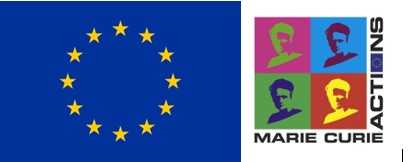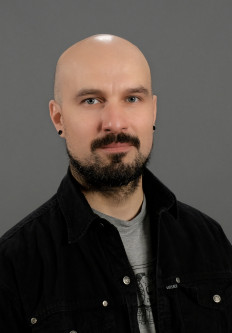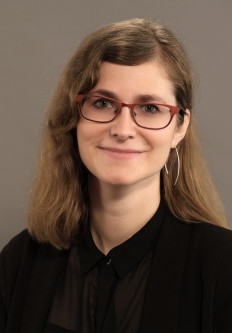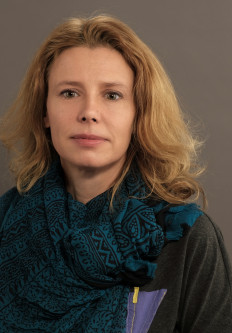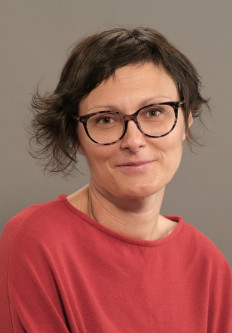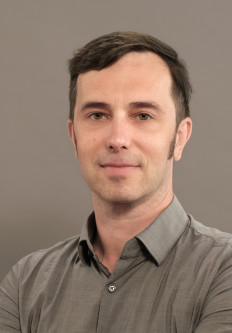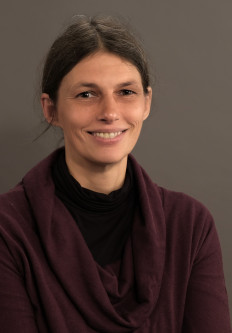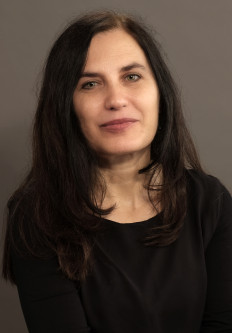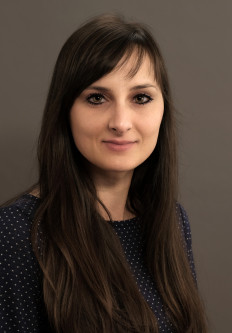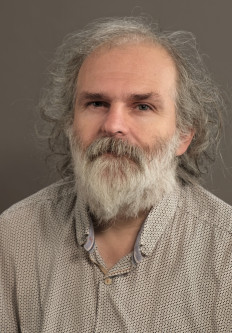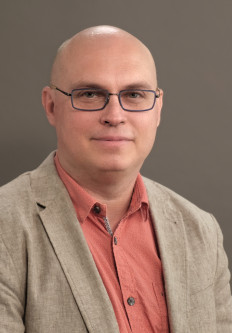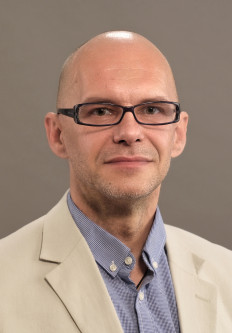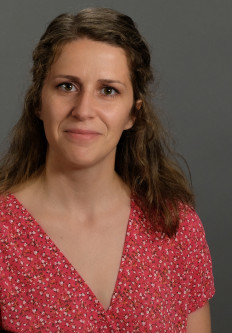

Modre ženske: Verovanja in mreže žensk, ki se ukvarjajo z duhovnostjo, v srednjeevropski vernakularni religiji (WiseWomen MSCA IF No. 898740)
Judit Kis-Halas
Oddelek za etnologijo in kulturno antropologijo, FF UL
Projekt Modre ženske raziskuje vlogo žensk v srednjeevropskih skupnostih pri ustvarjanju pomenov in inovacij v religijskih praksah. Glavni namen raziskave je 1. Razumeti nastanek in izraze verovanja posameznika; 2. Raziskovati načine, kako je religiozna izkušnja rojena in posredovana naprej; 3. Raziskovati interakcije, skozi katere se pogaja o izražanju religije. Da bi osvetlili te procese z ženske perspektive, se projekt osredotoča na specifične akterje na polju sodobne religije: modre ženske. Modre ženske so ženske specialistke magije in medicine, ki so lahko obenem tudi izjemne religijske osebnosti. Projekt bo raziskoval različne tipe sodobnih modrih žensk tako v urbanih kot v vaških skupnostih jugozahodne Madžarske, severne Hrvaške in Slovenije. Projekt nastaja pod mentorstvom prof. Mirjam Mencej.
Wise Women: Beliefs and Networks of Female Spiritual Figures in Central European Vernacular Religion (WiseWomen MSCA IF No. 898740)
The Wise Women project aims to investigate the roles of women in creating meanings and innovations through religious beliefs and practices in Central European communities. The main objectives of the research are 1. to understand the creation and the expressions of individual belief; 2. to explore the ways how religious experience is born and communicated; and 3. to investigate interactions through which religious expressions are negotiated. To highlight these processes from women’s perspective the project focuses at a specific actor in the field of contemporary religion: the wise woman. Wise women are female experts of magic and medicine, and could also be outstanding religious personalities. The study will examine various types of present-day wise women in both urban and rural communities of South Western Hungary, Northern Croatia, and Slovenia. The project is mentored by Prof. Mirjam Mencej.
Wise Women: Beliefs and Networks of Female Spiritual Figures in Central European Vernacular Religion (WiseWomen MSCA IF No. 898740)
Judit Kis-Halas
Department of Ethnology and Cultural Anthropology
Faculty of Arts, University of Ljubljana, Slovenia
The Wise Women project aims to investigate the roles of women in creating meanings and innovations through religious beliefs and practices in Central European communities. The main objectives of the research are 1. to understand the creation and the expressions of individual belief systems; 2. to explore the ways how religious experience is born and communicated; 3. and to investigate interactions through which religious expressions are negotiated. To highlight these processes from women’s perspective the project focuses on a specific actor in the field of contemporary religion: the wise woman. This term denotes female experts of magic and medicine (seers and diviners, herbalists, healers), outstanding religious personalities (charismatic women, prophetesses, and ‘living saints’). In the context of present-day spirituality, wise women do similar activities as their historical predecessors, but the sources of their knowledge, the transcendent worlds they connect with and the methods they apply differ from the historical antecedents in many respect. The inquiry will examine various types of present-day wise women in a multi-ethnic and multi-confessional region encompassing South Western Hungary, Northern Croatia, and Slovenia.
To obtain knowledge on the subjective and inter-subjective processes creating religious thought and utterances, ethnographic fieldwork combined with historical research provides the most appropriate methodology. Furthermore vernacular religion, a concept elaborated by Leonard Primiano, will serve both as a category of analysis and a practical model, because its bottom-up perspective highlights the individual actors. By integrating folklore studies, anthropology, ethnology of religion, religious history and sociology into an interdisciplinary approach, it enables the fellow to bring the creation and recreation of religion by and among individuals into the spotlight.
The project is carried out at the Department of Ethnology and Cultural Anthropology of the University of Ljubljana (UL) under the supervision of professor Mirjam Mencej. This would allow the framing of the ethnographic and historical material already collected in Hungary in a regional, multicultural comparative context, and integrate the inquiry in the international academic scholarship. This project has received funding from the European Union’s Horizon 2020 research and innovation programme under the Marie Skłodowska-Curie grant agreement No 898740
Curriculum Vitae
Judit Zsuzsanna Kis-Halas, PhD
kishalas.judit@gmail.com +36-20-423-6461
Járó Péter utca 24, 7800 Siklós-Máriagyűd, Hungary
Marie Curie Fellow
Department of Ethnology and Cultural Anthropology
Faculty of Arts, University of Ljubjana
Aškerčeva cesta 2, SI-1000 Ljubljana, Slovenija
Education:
2019 PhD (summa cum laude) Literary and cultural studies (Hungarian and comparative folklore), Eötvös Loránd University (ELTE) Budapest
Professional experience:
Research:
Themes and scientific areas: early modern history of mentalities and historical anthropology (witchcraft, magic and healing); contemporary vernacular religion (esotericism, alternative spiritualities, New Age phenomena, new religious movements, native-faith and ethno-paganism); folk narrative research (belief narratives, charms); medical anthropology (medical systems, complementary and alternative medicine)
Research activities:
2019–2023 research fellow in the Popular Religion, Folk Belief, Mentalities in the 16–21th centuries: Digital Databases and Encyclopaedic Syntheses (NKFI Nr. 132535) project at the Institute of Ethnology, Research Centre for the Humanities, Budapest (HU)
http://eastwest.btk.mta.hu/kutatok/kis-halas-judit
2013–2018 researcher in the ERC grant of Prof. Éva Pócs (agreement No. 324214) titled Vernacular religion on the boundary of Eastern and Western Christianity: continuity, changes and interactions at the Institute of Ethnology, Research Centre for the Humanities, Hungarian Academy of Sciences, Budapest (HU)
2009–2013 assistant researcher in the Popular Religion, Folk Belief and Religious Folklore between the 16th and 21th century (OTKA Nr. 71288) research project, Dept. of Ethnology and Cultural Anthropology, University of Pécs (HU)
2005–2007 assistant researcher in the Folk Belief, Popular Religion, Mentalities: Manuscripts and printed sources from the 16–18th centuries (OTKA Nr. 46472) research project at the Institute of Ethnology, HAS
2001–2011 assistant researcher in the Motive Index and Catalogues of Hungarian Folk Narratives (OTKA Nr. 22023) research project at the Institute of Ethnology, HAS
1995–2003 assistant researcher in the Effects, Conflicts and Changes of Early Modern Mentalities research project at the Institute of Ethnology, HAS
Academic teaching:
2012–2014 assistant lecturer and researcher at the Department of Estonian and Comparative Folklore, University of Tartu (UT) Estonia, within the frames of the Centre of Excellence in Cultural Theory project of the European Union’s Regional Development Fund.
Courses:
- 2012/13 Autumn Semester Witches, Healers, Magicians: Vernacular magic and healing in early modern Europe (combined lecture and seminar course)
- 2012/13 Spring Semester Healthcare, Healers and Healing: vernacular practices in New Age settings (combined lecture and seminar course)
- 2013/14 Spring Semester Pagan Practices – Practicing Pagans: Approaches towards neo-paganism (combined lecture and seminar course)
- 2014/15 Autumn Semester Witches, Healers, Magicians: vernacular magic and healing in early modern Europe (combined lecture and seminar course)
2009 (Oct-Nov) invited guest lecturer Dept. of Estonian and Comparative Folklore at UT. Lectures on the system of Hungarian folk belief and on the typology of Hungarian belief narratives.
2005–2008 assistant lecturer at Dept. of European Ethnology and Cultural Anthropology, Dept. of Modern Literature, UP. Courses on Hungarian folk medicine, Hungarian and European folk belief, Hungarian and European calendar customs.
2001–2003 assistant lecturer at Dept. of European Ethnology and Cultural Anthropology, Dept. of Communication and Media Studies, UP. MA courses on early modern and contemporary witchcraft in Europe and Hungary (with Péter Tóth G.)
Grants / stipends:
Apr–July 2013 teaching grant at the Dept. of Estonian and Comparative Folklore at UT funded by the DoRa Programme Improving the quality of higher education by supporting the employment of international teaching staff funded by the Foundation Archimedes, the European Social Fund, and the Estonian Ministry of Culture
Jun–Jul 2000 research grant at the Dept. of Austrian History at the University of Vienna funded by Aktion Österreich-Ungarn (AÖK)
March–July 1997 TEMPUS Mobility undergraduate grant, Department of European Ethnology at Humboldt University, Berlin (Germany)
Academic Membership:
From 2019 on leader of the Anthropology of Religion Working Group of the Hungarian Cultural Anthropological Society
From 2019 on member of public body of the Hungarian Academy of Sciences
From 2015 on member of the Belief Narrative Network of the International Society of Folk Narrative Research
Organization of international conferences / symposiums:
2013 Vernacular Expressions and Analytic Categories. The 3rd international conference of Young Folklorists. Tartu, 14-15 May 2013 (organizer/coordinator)
2008 Stanford–Budapest Summer Institute on Vision, Collegium Budapest, July 2008 (assistant)
Outreach activities:
2014–1019 teaching folklore and folk dancing, coordinating 3 art education projects in the Elementary School and Art School at Siklós (Hungary)
1998–2019 10 appearances in national and local TV broadcasts, 5 open talks at cultural festivals, two open talks on the European Researchers’ Nights (in 2016 and 2017), regular contribution to the events of the Experience Workshop – The Experience Centred Math/Art Movement
2012–2014 Copy-editor of the Journal of Ethnology and Folkloristics (JEF), a peer reviewed journal and a joint publication of the University of Tartu, the Estonian National Museum and the Estonian Literary Museum.
List of publications:
https://m2.mtmt.hu/frontend/#view/Publication/SmartQuery/1127/
Why the Department of Ethnology and Cultural Anthropology at the University of Ljubljana?
During the two decades spent with ethnographic fieldwork and historical research in South-Western Hungary I realised that the comparative approach is essential to a better understanding of the cultural phenomena (religion, mentalities, folklore) I have been so keen to explore. Therefore the Department of Ethnology and Cultural Anthropology of the University of Ljubljana (UL) seemed an excellent choice to carry out a folkloric-anthropological investigation on vernacular female spiritual figures in Hungarian-Slovenian-Croatian-Styrian context. Both Professor Mirjam Mencej’s scientific achievements and research experience paired with our long-standing collegial and friendly relationship have prompted me to choose her as the scientific mentor of my project. In addition, the fruitful Erasmus cooperation between the Department of Ethnology and Cultural Anthropology of the University of Ljubljana and the Department of Ethnology and Cultural anthropology of the University of Pécs, one of my former workplaces, is a firm base of the successful implementation.
Video predavanja
Čarovništvo in medicina v času zgodnje sodobne Madžarske: 1. Ljudski zdravilci in babice ujeti v mrežo obtoževanj (Witchcraft and Medicine in Early Modern Hungary: 1. Popular healers and midwives trapped in the web of accusations)
Popular healers and midwives trapped in the web of accusations
Čarovništvo in medicina v času zgodnje sodobne Madžarske: 2. Lov na čarovnice in epidemija: kdo je razširil kugo? (Witchcraft and Medicine in Early Modern Hungary: 2. Witch-hunting and epidemics: who spread the plague?)
Witchcraft and Medicine in Early Modern Hungary: Witch-hunting and epidemics: who spread the plague?
Poganska luč, krščanski post, nakupovalna mrzlica: etnografski zapisi o adventnemu času (Pagan Light, Christian Fast, Shopping Craze: Ethnographic notes on the Advent season)
Pagan Light, Christian Fast, Shopping Craze: Ethnographic notes on the Advent season
The website is realized in the framework of the MSCA-IF Project 2019 “Wise Women: Beliefs and Networks of Female Spiritual Figures in Central European Vernacular Religion” (acronym: WiseWomen; grant agreement no. 898740). / Spletno mesto je ustvarjeno v okviru projekta MSCA-IF 2019 “Wise Women: Beliefs and Networks of Female Spiritual Figures in Central European Vernacular Religion” (akronim: WiseWomen; pogodba o dodelitvi sredstev št. 898740).
